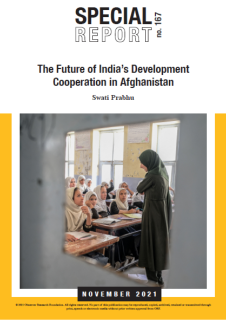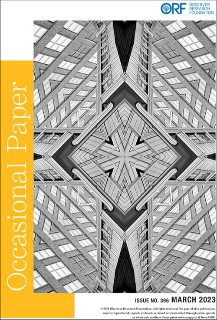Recent attacks by the Taliban in and around Kabul and in relatively secure areas of the north point to a larger effort by the Taliban to raise their military profile in the country. These attacks come at a time when the Afghan government said that it has been involved with indirect talks with the Taliban through unofficial channels, giving the Taliban a place in the unfolding political situation. These developments indicate that the Taliban is making gains in the military and political sphere, driven by a prevailing atmosphere of indecision and confused policy on the parts of the governments involved.
Several incidents since the beginning of 2014 provide more evidence to the fact that Taliban is growing more active in what were thought to be secure areas. In January, Taliban attacked a popular cafe in Kabul killing 21 civilians including 13 foreigners. Many of those killed were aid and NGO workers. While attacks on aid workers have been reported in remote areas of the country, targeting them in the heart of the capital reveals an increasing boldness on the part of the Taliban. The Taliban have carried out many such sophisticated attacks on high profile targets in Kabul in the past year, engaging the security forces in prolonged fire fights and causing severe casualties. In February, the Taliban attacked the Kabul-Jalalabad highway twice; targeting a police headquarters in Sarobi, 50 kilometres from Kabul, and presidential candidate's Dr. Abdullah Abdullah's motorcade on separate occasions.
Going further north from Kabul, insecurity is increasing. Many provinces that have been traditionally free of Taliban activity like Sar-e-Pul, Samangan, Balkh, Kunduz, Badakhshan, Baghlan, Faryab, Herat have seen a growing Taliban presence, mainly because the 2009 ISAF troop surge was focused on the southern and eastern provinces which had a higher concentration of Taliban fighters. The Taliban have taken advantage of absence of large number of foreign troops in the north to gain footholds in the region.
This year, there have been small but sustained attacks with the aim of disrupting the election process and intimidating the public in the Northern provinces. The Afghan National Security Forces (ANSF) has responded by stepping up security measures in the form of raids, killing many militants and seizing weapons and ammunition. Furthermore, northern Afghanistan is the most developed region of the country, therefore destabilising and undermining these achievements will have a particularly strong impact, nationally and internationally. Therefore the region is likely to remain a prime target, putting more pressure on local forces.
Future of ANSF
The attacks are taking a toll on the ANSF. A total of 84 Afghan army soldiers have died since the beginning of 2014 with the latest attack coming on 23 February when over a hundred Taliban and foreign insurgents attacked a checkpoint in Ghaziabad, Kunar province, killing 21 Afghan soldiers and wounding three. The ANSF is facing constant pressure from the Taliban and foreign fighters, all without the support of ISAF troops, the presence of which is still not guaranteed beyond 2014. According to a recent statement released by the Afghan cabinet, 13,729 ANSF personnel, which include police and soldiers, have lost their lives over the past 13 years. On the same day, President Hamid Karzai said in an interview with the Washington Post that "Afghans had died in a war that's not ours".
The future of the ANSF, in terms of aid and support from ISAF forces post withdrawal, is uncertain. Many experts believe that the current commitment of US and international forces to support the ANSF post withdrawal is not enough. If plans to downsize the ANSF from its current 382,000 to 258,500, as decided at the 2012 NATO Summit in Chicago, go ahead then the security situation will deteriorate, giving the Taliban an opportunity to increase the level of violence and thus gain leverage in negotiations. Current Taliban strategy is to wait till withdrawal takes place while simultaneously taking advantage of weaknesses in the present security system.
Space for political manoeuvring
Recent political developments suggest that the Taliban is taking measures to gain important political points while not committing to anything concrete. The US-Afghan rift in particular has created confusion regarding the future of the country and given the Taliban some breathing space. President Hamid Karzai recently announced the release of 65 prisoners from the Bagram detention facility which has offended the US as many of the prisoners have American blood on their hands. After the January attack in Kabul, the Afghan President accused the US of colluding with terrorists. The US is also frustrated over the Bilateral Security Agreement, which they want signed as soon as possible to be able to properly calculate the number of troops to leave behind. The US and NATO have both decided to start preparing for complete withdrawal by the end of 2014, sending a strong message to President Karzai.
The Afghan President on the other hand is using his resources elsewhere. He has recently admitted to carrying out secret talks with the Afghan Taliban, bypassing official channels set up for the purpose of peace talks. This is frustrating for the US because it was President Karzai who scuttled peace talks when the US tried to set them up last year. The Afghan President had been demanding progress on reconciliation talks before he signs the BSA. However, the recent admission to secret talks shows that he hopes for some understanding with the Taliban as a result of his own efforts rather than from the US. For all the concessions being given by President Karzai, the Taliban have not been responsive in any concrete terms nor have they climbed down from their positions. In a statement released earlier this week, the Taliban warned Afghans not to vote in the upcoming elections, saying it has ordered its fighters to disrupt them. They are happy to pretend to negotiate while they consolidate their strength and recover from wounds inflicted by the 12 year long war. Besides, the Taliban does not see the point in talking to an outgoing government.
The US feels like it has little control over the political situation. Deteriorating relations with the Afghan government notwithstanding, recent efforts to make contact with the Taliban also failed. Media reports said that both parties were engaged in talks for a prisoner exchange that has been in the works since the summer of 2012. The US agreed to release senior Taliban leaders currently detained in Guantanamo Bay in exchange for Sgt. Bowe Bergdahl, the only US soldier remaining in captivity in Afghanistan. However, Taliban spokesperson Zabiullah Mujahid announced suspension of talks due to a "complex political situation in the country". Curiously in another statement the same day, the Taliban praised the Afghan government for the release of prisoners from Bagram.
The Taliban sees a window of opportunity in the present lull in political and military relations between the Afghan government and the US. It has given them time to regroup and space for manoeuvring themselves into having a say in the future of Afghanistan. Politically, the Taliban have shown readiness to talk and are engaging with the Afghan government in order to be politically relevant in the post 2014 situation. Militarily, they have managed to keep up a steady pace of attacks. How far they will go in terms of military takeover will depend on what kind of a political deal the Afghan government can make with them, if at all. It remains to be seen which way the scale will tip but for now the Taliban is making small gains in both spheres.
(The writer is a Research Intern at Observer Research Foundation, Delhi)
"
The views expressed above belong to the author(s). ORF research and analyses now available on Telegram! Click here to access our curated content — blogs, longforms and interviews.




 PREV
PREV

